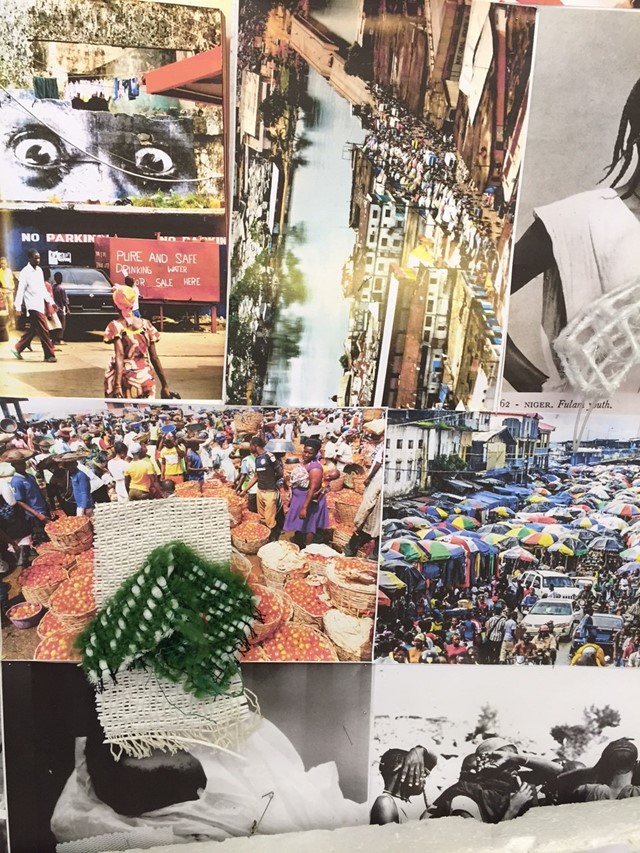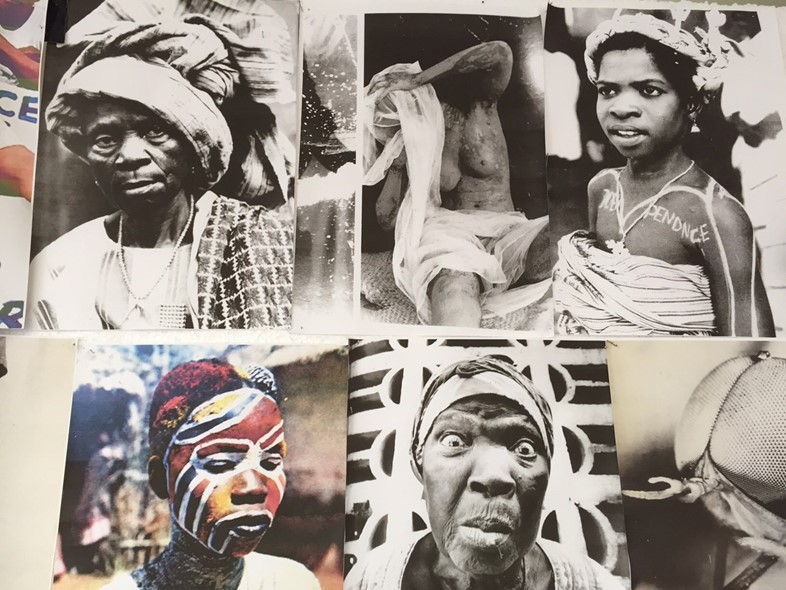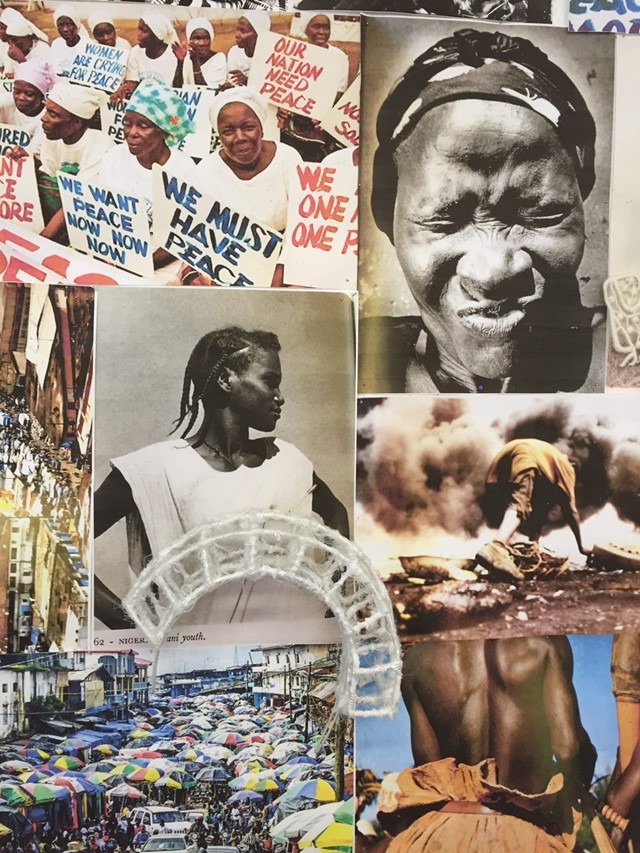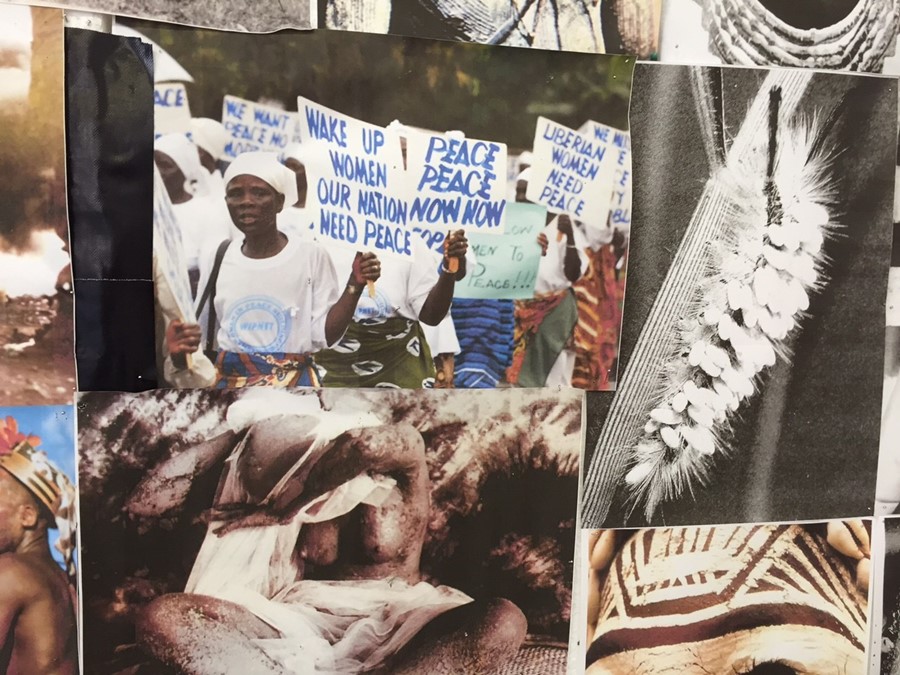Ahead of their S/S16 show, Teatum Jones reveal their conversations with the inspirational Nobel Peace Prize winner
Catherine Teatum and Rob Jones first met in Italy, where they were both working as designers, and it wasn't until 2011 that they both returned to London to establish their eponymous label, which has since become renowned for the immersive narrative behind its collections (past seasons have taken inspirations from fairytales, the Cold War and Vladimir Navokov). S/S16, which is premiering at London Fashion Week tomorrow, relates to Leymah Gbowee. A woman who played a vital role in bringing down the dictatorship of Charles Taylor and returning peace to Liberia in 2003 (following over 20 years of civil war), she was awarded the 2011 Nobel Peace Prize for "non-violent struggle for the safety of women and for women's rights to full participation in peace-building work." She is a truly inspirational icon – and here, Teatum describes the experience of discovering, then speaking with Gbowee…

“We were watching a documentary in which Hillary Clinton spoke about the power of feminism and the ways she was planning to use that as a platform in her campaign. Leymah didn’t play a huge part in the documentary, but she stood out instantly. She’s fierce; that’s what drew me to her. After our last collection – which was inspired by Northern Soul – I had really wanted to find an amazing, no-nonsense woman, and immediately I knew she was the one. A big part of her appeal was that everything she did was very instinctual. It wasn’t planned. It was reactionary. Anger fuelled a lot of her motivation.
Gbowee's social work programme was based on conflict resolution and we learnt that her main approach was sharing stories. That’s why I think we felt such a connection to her, because it’s what our collections are all about. We’re humans, we need to connect. Through that, people realised she was a natural leader with a powerful voice. Her own story is tough; she suffered domestic violence and had to move around a lot to escape from the civil war. Other women gravitated towards her; there were Christian groups and Muslim ones that had never come together before and she acted as a catalyst for unity."

"We emailed her, and then wrote a letter. Then, we had a reply. It was from her, not an assistant, and we arranged to Skype. It was one of those moments that was just incredible. She was in New York and had just got of the bath, and was talking and laughing at the same time but was also militant – she doesn’t take any shit. We had sent her a list of questions, and immediately she said 'Ok we don’t have much time. There is one question I must answer first!' We had asked her for one line or phrase which would sum up everything she believed. She said 'Never despise humble beginnings.' It’s the title of our S/S16 show. Her voice – recordings from our conversation – will be playing over the music."

"Gbowee's most powerful message is about owning your story – she calls it 'shedding the weight'. It’s a very simple way to regain dignity. She told us about one of her most significant and famous actions: at the peace talks in Ghana, she was about to be arrested for staging a sit-in. She began to unwrap and undress. Many people questioned why she would do something which could be seen as sexual when the conflict had created huge problems with mass rape. It was amazing to hear her explain to us that it’s an old African tradition: if an older or married woman exposes herself to a man, then it’s seen as a curse. The men – war leaders, commanders and presidents – were so terrified that they reached an agreement within days.
The collection feels very eclectic. There’s a lot of the influence from wrapping techniques which Liberian women use when they dress. We’ve manipulated patterns from traditional Liberian cloth with screen-printing and hand-painting. But it is ultimately modern; not crafty. Lightness comes from the landscape; the wispiness of the vegetation which she talks about in her book. It’s full of movement.”
